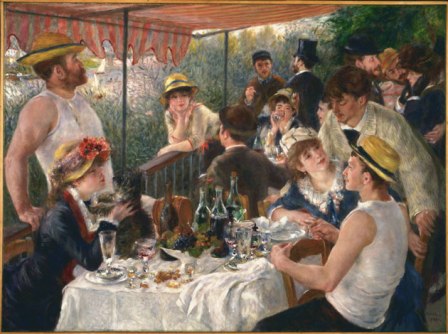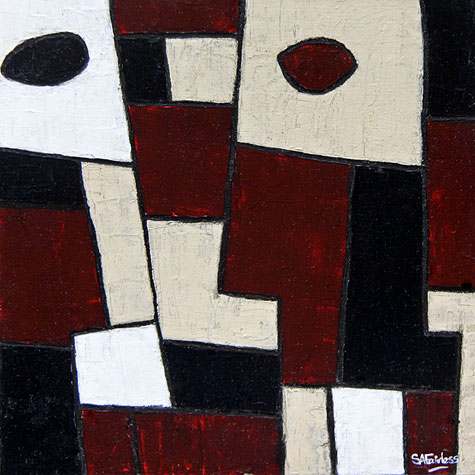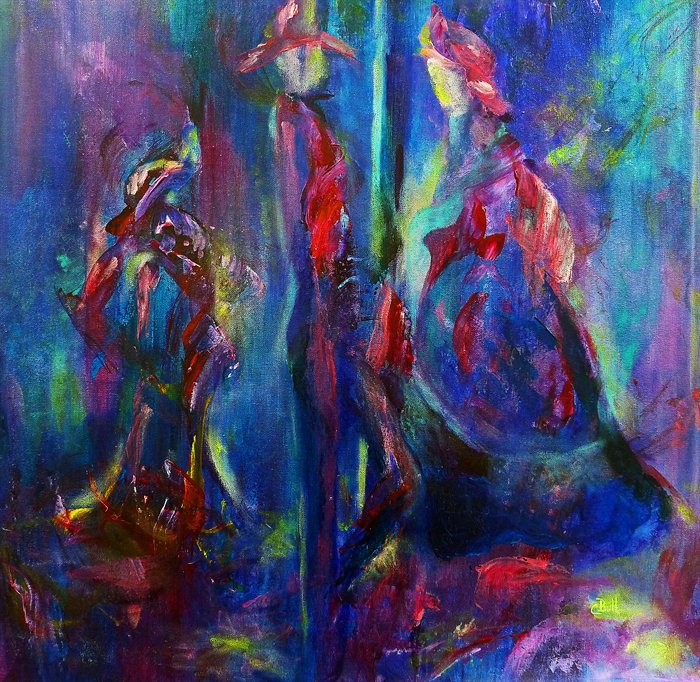Write an engaging dialogue between at least two characters in your story where the action is advanced through the conversation. Remember that the language should fit the character, the comments are not too lengthy, the dialogue serves a purpose and the speech of the character(s) is true to life.
Here is what a published author of several novels expresses about the virtues of using dialogue in a story.
EIGHT GOOD REASONS TO USE DIALOGUE
Dialogue is one of the most powerful tools available to fiction writers because of its versatility and the number of jobs it can accomplish. But before we get to the eight reasons to use dialogue, just allow me a moment to weigh-in my opinion on three dialogue issues.
First, I’m in agreement with Stephen King that “adverbs are not your friends.” So I prefer to avoid -ly endings as dialogue emphasis whenever possible, she said shyly. Instead, I prefer to use descriptive beats, she said, breaking the contact of their gaze.
Second, my personal preference is to stick mainly to the tag ‘said’. Saying she coaxed, shouted, barked, growled, murmured, laughed, giggled, and raged and so forth, gets distracting. In contrast, the word ‘said’ is almost invisible to readers. I occasionally have a character whisper and if you search my stories you’ll probably find an –ly ending in there somewhere, but I really think about it first.
Third, try to limit colloquial language, “Aare yaw’ll luse yar r-r-reader, lassie. Ya ken?” Such speech in moderation may add realism, individuality and interest. But too much of a good thing is too much of a good thing. It’s hard work to decode all that phonetic spelling. An alternative is to just telling the reader early on that the character has an accent and then mimicking the cadence of that dialect.
And now to those eight reasons why dialogue is an author’s friend…
1. Dialogue Adds the Illusion of Reality
Real people have conversations. Giving your characters realistic conversations is an excellent way to create the appearance that your creations are living and breathing people.
Allow me to mention that while you want your characters to appear real, written dialogue does not much resemble actual conversations. In life, conversation often rambles, rarely has a point, and is largely boring retelling of a boring event. In reality, many conversations are nothing more than polite, mundane and pointless exchange of social niceties.
But in fiction, dialogue is condensed, focused and has a point. So in an odd way it does not resemble reality, so much as give the impression of reality.
In addition, when taking part in a real conversation it is darn difficult to know what the speaker is really thinking. Here is where fictional dialogue has a huge advantage over actual conversation. In fiction, the reader often does know what the speakers are thinking, because the author has woven that into the dialogue by use of tags, beats, internal thought and exposition. The physical beats can give important clues. How something is said can be just as important to what is said.
2. Dialogue Makes Reading Easier
Dialogue breaks up blocks of exposition with lots and lots of appealing white space. I’ve seen readers flip through a book’s pages before buying. So what are they looking for? They might be checking how fast the reading will go (white space). They might be searching for an interesting passage (of dialogue) at which to stop. If that’s not reason enough, think about what you do when the story gets a little tedious. You scan forward searching for….dialogue.
3. Dialogue Reveals Character
“You’re worried.” “Why do you say so?” “You’re grinding your teeth so they squeak.”
~OUTLAW BRIDE
Dialogue can expose things about characters, about their habits, thoughts, level of education, ethnic background, upbringing, faith and many other interesting and important details.
4. Dialogue Reveals Secrets
“Do you know ‘Deck the Halls?”
His expression of gladness vanished like a fleeing dove. He stiffened, his fists clenched upon his thighs. He broke eye contact. “I do. It was my daughter’s favorite.”
She was glad he looked away, for it kept him from seeing her gape as she tried to grasp what he had just told her. He had a daughter?~FALLEN ANGEL
This is one of my absolute favorite uses of dialogue, hitting the reader right between the eyes with a secret they never saw coming. Exposing mysteries in dialogue gives them real power and the added element of surprise.
5. Dialogue Reveals Relationships
“You have no faith.”
“Yes I do. I got faith in my Hawkins rifle and the power of these mountains. I got no time for idiots.”
“I didn’t ask to come here.”
“Well, I didn’t invite you neither.”
~ WINTER WOMAN
You can learn a lot about characters about how they speak to each other and what they chose to reveal, or hide, in dialogue.
6. Dialogue Shows backstory
“You have some explaining to do,” he said.
“I do? That’s a hoot because I never did see your face after you left town. Still searching for your fortune, Thomas?” She settled a fist upon her hip. “Still planning to come back to me?”~HIGH PLAINS BRIDE
Experienced authors know better than to drop a large block of backstory in exposition. Dialogue, on the other hand, is a great way to reveal something important about the characters history. Be cautious not to have two characters who both know the past speaking about something solely for the reader’s benefit. This always comes across as unnatural. For example: “Sarah, you know that you are my twin sister and that we were separated at birth because of our parents’ divorce agreement, so I don’t really know you at all.” That is not what the character would say and such information drops are sloppy and aggravate readers.
7. Dialogue Advances the Story
“Why do you think I’m drunk?”
“I don’t know.”
“Because I’d never have the guts to marry you sober. So if you’ve a mind to, you best marry me quick. I can only stay this drunk so long. Sooner or later, I’m bound to pass out.” ~HIS BROTHER’S BRIDE
Dialogue is a great way to keep things moving, particularly if new information comes to light, secrets are revealed or problems are complicated.
8. Dialogue Deepens Conflict
“Indians took my daughter. You’re going to help me get her back,” he scowled.
“You want help? You’d best ask the girl’s father.” A vicious smile widened her full lips. “You are her father, Thomas.”~HIGH PLAINS BRIDE
Ah, there is no problem that an author cannot make worse. Dialogue is a great place to have two characters face-off over any number of issues. It’s interesting to hear people argue, particularly if the conflict is about a value or belief. Be cautious, however, of protagonists who constantly bicker. Characters that cannot be in the same room without fighting rightly make the reader wonder if they really have what it takes to survive as a couple.
Conclusion
So there you have it, eight compelling reasons to use dialogue in your story and if that’s not enough, I offer one more from an author who I consider a master in the use of dialogue.
“I try to not write the parts people skip. I’ll bet you don’t skip dialogue.” ~Elmore Leonard~

Before you write dialogue you must be aware of the rules governing proper punctuation for expressing dialogue in your story.
The rules for proper punctuation when writing dialogue:
Dialogue seems to be one of the most feared forms of punctuation, but it needn’t be. Here’s the lowdown on punctuation for dialogue.
1. Place quotation marks around the words that actually come out of the person’s mouth.
I tell my students if the words go in a comic strip bubble, then quotation marks go around those words. I ask them if they ever see the words he said or she said in a comic strip bubble. Usually they reply in the negative. If they answer in the affirmative, I tell them to go read a comic book.
2. Place ending periods and commas inside the end quotation mark.
Mariah said, “I want an elephant for my birthday.”
3. Place proper punctuation at the end of the sentence.
“I want an elephant for my birthday,” Mariah repeated.
4. Each time a person speaks, begin a new paragraph.
Mariah stomped her foot and demanded, “I want an elephant for my birthday!”
“Certainly, honey,” her father replied. “Anything for my angel.”
5. Capitalize the first word of what the person says, even if it occurs in the middle of a larger sentence.
Mariah’s mother asked her husband, “Where are you planning on keeping this elephant?”
6. Use single quotation marks to enclose a quotation within a quotation.
Mariah responded, “Don’t tell me ‘clean up your elephant’s litter box!’ you bossy hag.”
Here’s an example of how dialogue can up the pace in your story. In this scene, Yelena has a knife to Cahil’s throat – she has woken him and surprised him in the middle of the night.
“Don’t move,” I said. “Your sword is out of reach. I’m not that stupid.”
“So I’m learning,” he whispered.
I felt him relax.
“What do you want?” Cahil asked.
“A truce.”
“What kind?”
“You stop trying to drag me to the Citadel in chains and I’ll accompany you there as a fellow traveler.”
“What do I get out of the deal?”
“You get Goel back and my cooperation.”
“You have Goel?”
I dangled the manacles’ keys over his face.
“How can I trust you when your brother doesn’t trust you?”
“I’m offering a truce. So far, I’ve had two opportunities to kill you. You’re a real threat to Ixia. If I were a true spy, your death would make me famous in the north.”
“And if I renege on this truce?”
I shrugged. “I’ll escape again. But this time, I’ll leave Goel’s dead body behind.”
“He’s a good tracker,” Cahil said with pride.
“Unfortunately.”
“If I say no to your offer?”
“Then I’m gone, leaving you to find Goel.”
“Dead?”
“Yes.” I bluffed.
“Why come back? You took care of Goel. He was the only threat to you.”
“Because I want the chance to prove that I’m not a spy,” I said with frustration.


